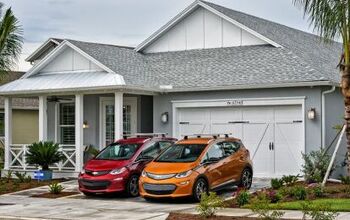Are Electric Cars Really Helping the Environment?
A recent study by the Keck School of Medicine of USC provides new insights into the potential benefits of electric vehicle (EV) adoption. The research, published in the Science of the Total Environment journal, presents the first real-world data linking EVs to reductions in air pollution and respiratory issues. This study marks a significant step in understanding the impact of electric cars on public health and the environment.
Understanding the Impact: Research Methodology
The researchers used multiple data sources to conduct their analysis. They gathered information on the total number of zero-emission vehicles (ZEVs), which include battery electric, plug-in hybrid, and hydrogen fuel cell cars, from the California Department of Motor Vehicles. The team also analyzed air pollution levels, focusing on nitrogen dioxide (NO2), and the rates of asthma-related emergency room visits across various California zip codes from 2013 to 2019.
Findings: Reduced Pollution and Health Risks
The results revealed a clear pattern: As the adoption of ZEVs increased within a zip code, there was a notable decline in local air pollution and asthma-related emergency room visits. Specifically, for every additional 20 ZEVs per 1,000 people, there was a 3.2 percent reduction in the rate of asthma-related emergency visits. Furthermore, the study showed a modest decrease in NO2 levels, a pollutant closely linked to traffic emissions.
Socioeconomic Disparities in ZEV Adoption
However, the study uncovered an adoption gap in ZEVs, with slower uptake in lower-resource areas. This gap highlights a need for policies that promote equitable access to clean transportation, particularly in communities disproportionately affected by pollution and related health issues.
Future Research and Broader Implications
While the study's findings are promising, the researchers acknowledge that more investigation is needed. Future research should explore additional pollutants, other vehicle classes, and broader environmental impacts of ZEVs, including the emissions from their production and disposal.
Conclusion
The study by the Keck School of Medicine of USC offers another case for the adoption of electric vehicles, not just for environmental reasons but also for public health benefits. It underscores the importance of considering local actions in the global fight against climate change and highlights the potential for significant health improvements through technological advancements in transportation.
This article was co-written using AI and was then heavily edited and optimized by our editorial team.
More by TTAC Staff
Latest Car Reviews
Read moreLatest Product Reviews
Read moreRecent Comments
- Tassos Ans: ABSOLUTELY NOTHING.I don't want to know anything about any other poor man's BMW Mazda either.
- Tassos Ford is losing $100,000 for each EV it sells.Socially Promoted, Affirmtive Action hire Mary Barra does not disclose the corresponding number for GM. Maybe it is even worse? It sure is not zero.
- Tassos Worthless, senile, serial liar, Idiot Joe Biden managed to shoot himself, GM and FORD all in the foot with his IDIOTIC Tariff.GM and FORD (this is not my opinion, watch AUTOLINE DAILY TODAY) will be those who will hurt the most by Idiot Joe Biden's tariff.
- Bd2 Affluent "Van Life" individuals have been taking a serious look at adapting the KIA EV9 thanks to it's versatile capacity, class leading range and durability. Expect to see these making coast to coast round trip journeys this summer.
- Lou_BC Build Your Dreams? That would explain the CyberTruck and Mr. Musk's use of ketamine.

































Comments
Join the conversation